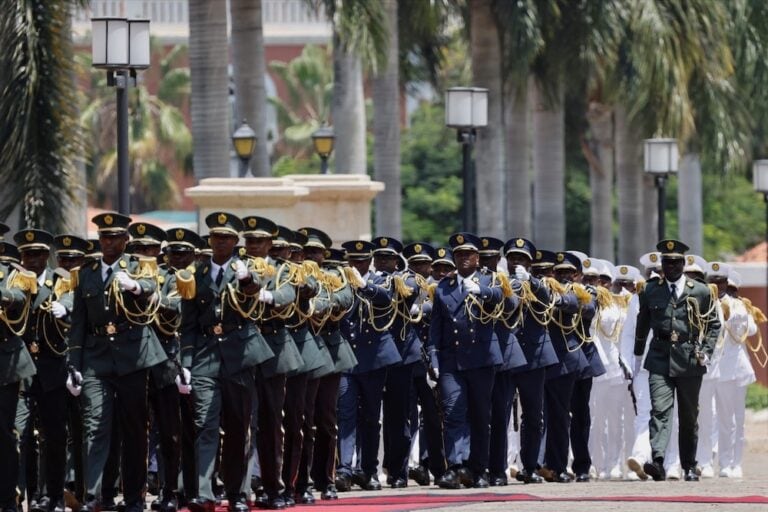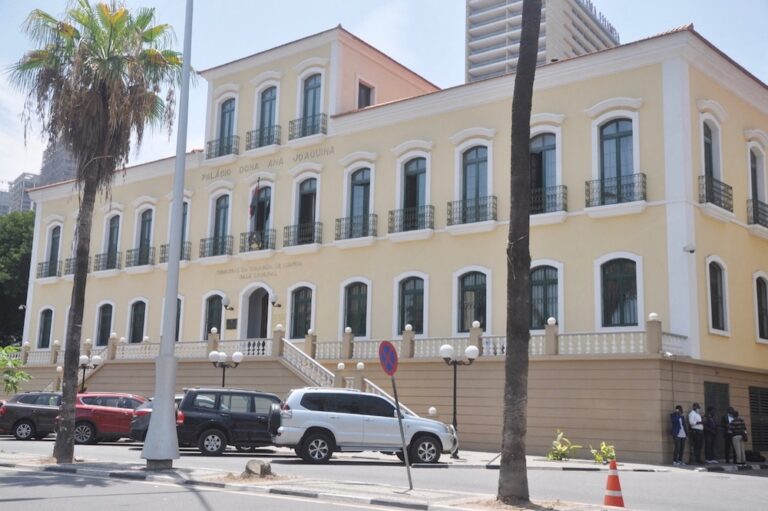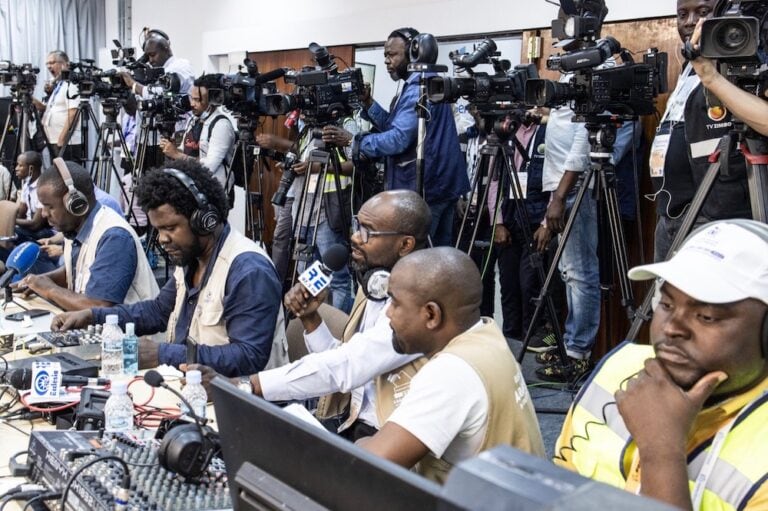On 31 March 2000, journalist Rafael Marques and Anguear dos Santos, the director of the independent weekly “Agora”, were convicted of defaming President Jose Eduardo dos Santos. A third accused, Antonio de Freitas, the chief editor of “Agora”, was acquitted. Marques and Dos Santos were both convicted of defaming, injuring and slandering the president, while […]
On 31 March 2000, journalist Rafael Marques and Anguear dos Santos, the director of the independent weekly “Agora”, were convicted of defaming President Jose Eduardo dos Santos. A third accused, Antonio de Freitas, the chief editor of “Agora”, was acquitted.
Marques and Dos Santos were both convicted of defaming, injuring and slandering the president, while Marques was convicted on an additional charge of defaming, injuring and slandering Angolan Attorney General Domingos Culolo. Marques was sentenced to six months imprisonment and a fine of Kwanzas100 000 (about US$20,000), while Dos Santos was sentenced to two months in prison and a fine. It is not clear how much he was fined. Both sentences have been suspended pending an appeal. Both journalists have been restricted, in terms of the judgement, from speaking or writing about anything related to the “crime”, and from traveling outside the country.
BACKGROUND:
The trial of the three journalists began on 21 March, but was held largely in secret. The trial and charges stemmed from an article written by Marques which appeared in “Agora” in July last year. In the article, Marques referred to President Dos Santos as a dictator.
On 16 October, Marques was detained in connection with these charges. He was held in prison for forty-one days and was only formally charged shortly before being released.
Previously, it had been incorrectly stated that Marques was “defending the charge of Defamation of the President under the previously repealed Angolan Press Law of 1978 also known as the Law of Crimes against the State”. The Press Law and the Law of Crimes against the State (also known as Law 7/78) are in fact two different laws. The Press Law came into effect after the adoption of a new Constitution in 1992, while the latter was enacted in 1978 shortly after an alleged attempted coup in Angola. Law 7/78 technically violates, among others, the constitution’s free expression clause, but the law has not been officially repealed due either to the fact that no official court challenge has been lodged against it, or parliament has not officially repealed it. One difficulty in making a challenge against the law is that Angola does not currently have a constitutional court or other court empowered to hear matters dealing with the constitution.


